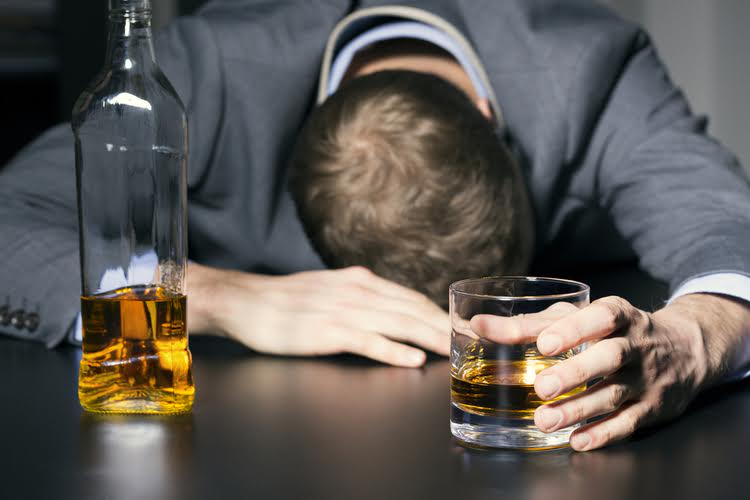While I enjoy an occasional celebratory alcoholic beverage, I’m partaking in going dry for January as I feel more energized and sleep better without alcohol. Plus, I thoroughly enjoy craft and adaptogenic mocktails, especially with a Tajin or salted rim. If you are addicted to alcohol or to drugs, don’t let your problem become progressively worse.
- Those susceptible or predisposed to alcoholism may experience higher levels of pleasure compared to the average population.
- This is of particular concern when you’re taking certain medications that also depress the brain’s function.
- One recent analysis found a sobering relationship between alcohol and health.
They should emphasize linking different phases of care, such as connecting patients to mental health professionals, housing, and peer support groups when transitioning out of the acute phase of care. They should also have proactive strategies to avoid dropping out, involve the family in treatment, employ qualified and certified staff, and be accredited by an external regulatory organization. This means that people with genetic or family risk factors who begin drinking large amounts of alcohol early in life may quickly escalate from experimenting with alcohol to developing an addiction. On the other hand, people who begin drinking later in life and do not have a strong family history of alcoholism may be able to drink in moderation and never develop an addiction.
That doesn’t mean people who drink for fun aren’t at risk of developing problems.
Alcohol use disorder is an official diagnosis included in the Diagnostic and Statistical Manual of Mental Disorders. It is a legitimate medical condition that causes changes in the brain and makes it difficult to stop drinking. It leads to turmoil in the home, resentful relationships, and even emotional or physical health problems. Unfortunately, people who become alcoholics often require professional treatment in order to recover.
Perhaps most importantly, these factors all threaten brain metabolism, Perlmutter explained. This means that these factors impact how the brain can use glucose to power its cells. “These mechanisms include inflammation [and] increased activity of damaging chemicals called free radicals,” he said. She says an important aspect of the month is inclusion for those who opt not to drink, no matter the reason. Heather Ransome worked in the hospitality industry for years but switched gears after she decided to stop drinking.
Can People With Alcohol Use Disorder Recover?
They can research alcoholism to understand the underpinnings of the disorder, the signs of an overdose, and other important information. They can discuss co-occurring mental illnesses such as anxiety and depression. They can seek help from peer support groups and mental health professionals as well.
People experiencing aversive psychological symptoms value drinking alcohol, because it helps to alleviate their negative feelings. Overall, 62% of U.S. adults say they ever drink alcohol, while 38% abstain completely, according to a July 2023 Gallup survey. Gallup has asked Americans for more than eight decades whether they have “had occasion to use alcoholic beverages such as liquor, wine or beer.” During that span, majorities have consistently said they consume alcohol. This share peaked in the late 1970s, when 71% of adults said they drank alcohol.
How Does Addiction Develop in the Brain?
Fesharaki-Zadeh explained that there is a good likelihood of someone substantially lowering their risk of young-onset dementia—as well as late-onset dementia—if they address these 15 risk factors. Multiple lifestyle factors can increase your risk of early-onset dementia, according to a new study. Located in Central Ohio, our comprehensive addiction treatment facility offers several levels of care to fit the needs of each individual. It comes after one in 10 UK drinkers shared they think they have an unhealthy relationship with alcohol, according to an annual survey released in November. A YouGov survey found 44% percent of drinkers between 18 to 24 say they occasionally or regularly order low or non-alcoholic drinks.

However, some people don’t experience any risk factors yet still have a drinking problem. That being said, let’s take a look at some of the most common reasons why people get addicted to alcohol. Alcoholism, also known as alcohol use disorder, is a complex why do people become alcoholics condition caused by a combination of genetic, environmental, and psychological factors. Stressful life events, mental health disorders, peer pressure, easy access to alcohol, and normalization of heavy drinking can contribute to its development.
Dodging Discomfort: Alcohol as Escape
Using alcohol during adolescence (from preteens to mid-20s) may affect brain development, making it more likely that they will be diagnosed with AUD later in life. However, most people with AUD—no matter their age or the severity of their alcohol problems—can benefit from treatment with behavioral health therapies, medications, or both. As individuals continue to drink alcohol over time, progressive changes may occur in the structure and function of their brains.
- Most adults who consume alcohol have done so recently, according to the July Gallup survey.
- If individuals are able to monitor their alcohol intake in a healthy, recommended manner, this can prevent them from experiencing the many potential hardships that can follow alcohol abuse.
- Genetic, psychological, social and environmental factors can impact how drinking alcohol affects your body and behavior.
- The reality is that alcohol can be an addictive substance and, when used in large quantities, can be harmful regardless of why one chooses to drink.
